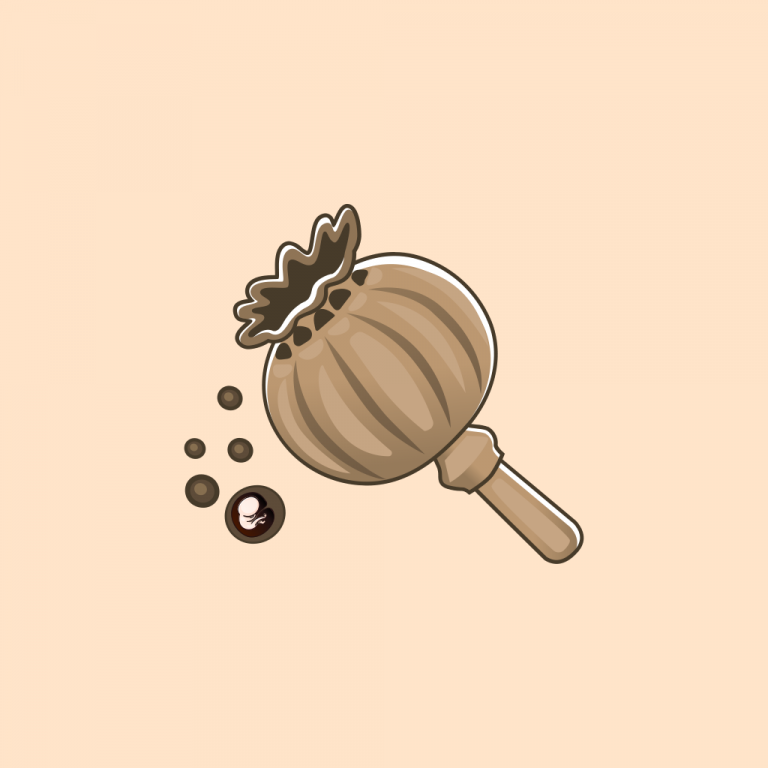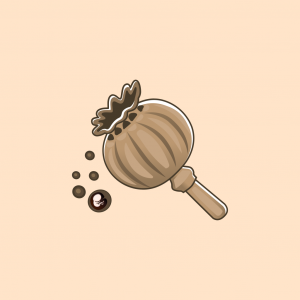Did you know that most women start feeling their baby move from weeks 18 to 22 of pregnancy? Sometimes women can feel movement as early as week 14 or even as late as week 26 of pregnancy. Waiting for the first signs of baby movement, known as “quickening,” is an eagerly awaited milestone in pregnancy.
These first soft flutters are the start of a deep connection between you and your baby. They serve as a reassuring sign of your baby’s growth. These first movements bring a mix of joy and excitement. Monitoring these movements is important as changes in fetal movement can be indicators of the baby’s health, warranting immediate medical attention.
Key Takeaways
- Most women feel their baby move between weeks 18 to 22 of pregnancy.
- Veteran moms may feel fetal movements earlier, around 16 weeks.
- An anterior placenta can delay feeling movements by weeks.
- Partners usually feel the baby’s kick a few weeks after the mother.
- By the third trimester, baby movements should be felt every day.
- Kick counts starting at week 28 ensure regular monitoring of baby’s movements.
- A sudden change in fetal movement patterns warrants contacting a healthcare provider.
Knowing when and why you will start feeling your baby kick is useful information for you as you progress through pregnancy. As these unforgettable baby movements start, remember their dual role. They are not just a source of joy but also a vital check on your baby’s health and well-being.
Introduction to Feeling Baby Movements
Experiencing pregnancy comes with unforgettable moments, and feeling your baby move is truly special. These first movements, also called quickening, are a key part of developing a bond with your unborn baby. They mark an important milestone in your pregnancy journey.
What is Quickening?
Quickening brings joy as a mom feels her baby’s first movements. This usually happens around the 16th week for experienced moms and by the 20th week for first-timers. These sensations, like fluttering or bubbles, begin near the pubic bone. They are unique to each pregnancy.
Why Baby Movements Matter
Fetal movement is a good indicator that your baby is doing well and feeling these movements help you bond with your unborn child. Monitoring the baby’s movements in the third trimester is important, especially if there are concerns about the baby’s health. As pregnancy progresses, you will feel stronger and clearer movements, like kicks and somersaults, especially in the last trimester.
Pregnancy care providers advise counting 10 movements in two hours, starting from the 28th week of pregnancy. Regular kick counts are important. They can help you spot signs of possible trouble early.
When You Can Expect to Feel Baby’s First Movements
Feeling your baby move for the first time is truly special. It is a highlight for many pregnant women, filling them with joy and wonder.
Weeks 16-25: The First Flutters
Pregnancy brings many firsts, including the baby’s movement, often called quickening. This happens between weeks 16 and 25. At this time, you might feel soft flutters or gentle taps, signaling your baby is moving.
By the 20-week mark, most first-time moms notice these movements. They seem like butterfly flaps in the lower belly.
If you have been pregnant before, you might feel movement as early as 16 weeks. Your uterine muscles can more easily recognize your baby’s touches.
Factors That Influence When You Feel Movements
Certain things affect when you will first feel your baby move. These include:
- Previous Pregnancies: Previous pregnancies may allow you to detect movements sooner.
- Placenta Position: An anterior placenta might make it harder to feel movements early on.
- Individual Sensitivity: Some people might feel movements sooner because of sensitive uterine muscles.
If you have not felt movement by 24 weeks, talk to your health provider. By then, baby movements are usually more noticeable and regular.
Descriptions of Baby Movements
Fetal movements are a big joy for expectant moms. They include kicks, twists, taps, flips, and hiccups. As the pregnancy progresses, the variations in the baby’s kicking become more noticeable. Early on, movements may feel like bubbles or soft rolls. As the baby gets bigger, the movements are slower but strong. Mothers might feel pulses, or like a fish is swimming inside them.
In the second trimester, kicks feel like taps. Near the end, it can feel like stretching or a wrestling match in the belly. It is crucial to keep track of movements to know what is normal for your baby. Remember, each baby is different, so there is no “normal” number of kicks per day. You will likely notice a pattern from weeks 24 to 28. If you are worried about the baby’s movements, or do not feel anything by week 24, call your pregnancy care specialist right away.
Feeling Baby Move and Kick
Identifying Different Types of Movements
Knowing the different types of fetal movement is vital. It helps track your baby’s well-being. At first, movements are light, like a flip or flutter. As your baby grows, these signs change:
- Flutters: These are often the first movements felt, usually between 16 and 22 weeks.
- Kicks and Jabs: When your baby gets stronger, the movements are clearer, around 20 to 25 weeks.
- Rolls and Twists: Later in pregnancy, you might feel your baby rolling or twisting because of the tight space.
- Hiccups: These are rhythmic movements your baby makes while practicing breathing, feeling like gentle pulses.
Understanding baby movements is important. It helps you see normal changes and know when to seek help. After week 28, you should feel movements daily. It is recommended that you do daily kick counts starting at 28 weeks. It is good to count at least 10 movements in one to two hours. This is called a fetal kick count. If you notice less, it is time to reach out to your health care provider.
An active baby typically means they are healthy. But, sudden changes in baby kicking patterns should not be ignored. Your movement and the baby’s sleep cycles can affect what you feel. Always talk to your pregnancy care specialist about any worries you may have.
The Progression of Baby Kicks Throughout Pregnancy
Understanding your baby’s movements during pregnancy helps you ensure their well-being. These movements change a lot over the three trimesters.
First Trimester Movements
In the first trimester, you might not feel your baby moving. This is because the baby is just starting to grow. Their movements are too gentle to notice.
Second Trimester Movements
By the second trimester, around weeks 16 to 25, you might feel light flutters. By month 6, these flutters turn into stronger kicks. It’s important for moms to learn what these movements mean.
Third Trimester Movements
In the third trimester, from week 28, your baby’s kicks are strongest. They might move up to 30 times in an hour. This includes strong kicks and reactions to sounds or touch. It is crucial to keep track of these movements every day.
During this trimester, it is important to pay attention to how your baby moves and if there is a decrease in movement. Any big changes could mean a trip to your pregnancy care specialist is needed. A lot of movement usually means your baby is doing well. They are responding to their surroundings.
Monitoring Your Baby’s Movements
Keeping an eye on your baby’s movements is key during pregnancy. Each kick, punch, and roll tells you how your baby is doing. It is a way to make sure they are doing well.
Fetal Movement Assessment
Between the 16th and 22nd weeks, you’ll start to feel your baby move. These movements get stronger as time goes on. Around 28 weeks, doctors suggest you start counting these movements. It helps spot any possible health concerns early.
You will track how many movements happen in a certain time, often after eating and drinking a glass of water. That is when your baby is likely to move more. Knowing what is normal for your baby helps you notice any changes that could be worrying.
Baby Kick Counts
The “count to 10” method helps you track your baby’s kicks easily. You should feel 10 movements in 1-2 hours. Keeping track once daily helps you see if anything changes in your baby’s routine.
If the movements lessen or change, call your health care provider right away. Writing down what you feel each day is a simple and effective way to track your baby’s habits.
By counting kicks, you are not just comforting yourself; you are helping keep your baby safe. One state, Iowa, saw a 32% drop in stillbirths after starting a Count the Kicks campaign. This shows how powerful keeping track of fetal movement can be for your baby’s health.
When to Be Concerned About Fetal Movement
It is very important to know how your baby normally moves. If you notice a drop in activity or a change in how they move, it could be a red flag. Keeping track of these changes is key.
When to Contact Your Health Care Provider
If your baby’s movements slow down a lot, or if you feel no movement for a while, contact a your pregnancy care provider right away. Babies should move consistently every day. Any change might mean there are issues, like growth problems or umbilical cord complications. Since changes in movement could lead to serious outcomes, acting fast is important.
Tips for Encouraging Baby’s Movements
Feeling your baby move is an exciting moment during pregnancy. It helps you feel closer to your baby and shows they are doing well. By following some helpful pregnancy tips, you can encourage your baby to move more. This helps in bonding with your baby and tracking when they are most active.
Optimal Times to Feel Movements
To feel your baby’s movements better, keep these times in mind:
- Post-meal periods: Babies often move more after you eat due to higher blood sugar.
- Evenings: Babies are more active when you are relaxed and doing less, making movements easier to spot.
- Bedtime: When it is quiet and you are lying down, it is easier to focus on baby movements.
Activities That Stimulate Movement
Try these activities to get your baby’s movement and monitor their health:
- Have a snack: Eating a small snack or drinking some cold water/juice can make your blood sugar rise, which encourages your baby to move.
- Engage in light physical activity: Simple exercises like walking or pelvic tilts can stir your baby into moving.
- Change your position: Lying on your left side or gently swaying can wake your baby up for some action.
- Make some noise: Chatting or singing to your baby works well since they can hear around 16 weeks into pregnancy.
- Use gentle touch: A soft press on your belly might get a kick or nudge in response.
By following these pregnancy tips, you can have more moments of feeling your baby’s movements. These interactions are special. But, if you are ever worried about how often your baby moves, speak with your health care provider. They can offer advice and peace of mind.
Conclusion
Feeling your baby move inside you is a big part of being pregnant. At first, it starts with small flutters called quickening. Then, it moves to stronger kicks. These are signs your baby is growing and doing well. Most moms may not feel this until 20 weeks into their pregnancy. Some can feel it as early as 16 weeks. The variable time frame is due to past pregnancies, where the placenta is, and your body size.
Keeping track of how often your baby moves is important. It helps you understand what is normal for your baby. For example, feeling ten movements in two hours, is usually okay. If you notice a big drop in how much your baby moves, and it lasts more than four hours, you should talk to a health care provider. Watching these movements closely is important to monitor your baby’s health.
As your pregnancy goes on, these little kicks and wiggles do more than just tell you your baby is okay. They help you feel connected to your little one. This bond makes waiting for your baby’s arrival a special time filled with happiness and wonder. Let these sweet moments bring you joy as you get ready to meet your baby.
FAQ
When will I start feeling my baby move and kick?
Between weeks 16 and 25, you might start feeling your baby move. If it is your first baby, you might notice movements closer to 20 weeks. Those who have had babies before could feel it as soon as 13 weeks.
What is quickening?
Quickening is the first time you feel your baby move during pregnancy. It may feel like flutters, twitches, or tumbling. This experience is unique and marks an important milestone in pregnancy.
Why do baby movements matter?
Baby movements show that your baby is growing well. They let you monitor development and build a bond with your baby.
What influences when I will feel my baby’s first movements?
The timing of when you feel first movements can be affected by if it is your first pregnancy or where your placenta is located. Mothers who have been pregnant before tend to feel movements sooner.
How can I describe baby movements?
You might describe them as flutters, taps, or even bubbles popping. As the pregnancy goes on, these movements become kicks and flips, getting stronger and clearer.
What are the different types of baby movements?
Babies kick, flutter, roll, and even hiccup. Early on, movements feel like flutters. Later, you will feel stronger kicks and jabs. Every movement is a sign of how your baby is doing.
How do baby movements progress throughout pregnancy?
In the first few months, you might not feel your baby move. By the second trimester, movements become more noticeable. In the last trimester, expect regular fetal movement daily.
How should I monitor my baby’s movements?
Starting the 28th week of pregnancy, keep track of how often your baby moves. You should feel at least 10 movements in 2 hours. Movements are often felt more after you eat or drink.
When should I contact my doctor about fetal movements?
If there is a drop in movement or if you stop feeling your baby move after 28 weeks, call your pregnancy care specialist. Regular movements are normal, and sudden changes need a check-up.
How can I encourage my baby to move?
To notice more movements, have a snack or some juice. Light exercise or relaxing can help too. Babies usually move more after meals and in the evening.
References
- When Can You Feel Your Baby Move and Kick? – https://www.whattoexpect.com/pregnancy/fetal-development/fetal-movement/
- Fetal movement: When can you feel your baby move? – https://www.babycenter.com/pregnancy/your-baby/fetal-movement-feeling-your-baby-kick_2872
- Quickening In Pregnancy: First Movements & What To Expect – https://my.clevelandclinic.org/health/symptoms/22829-quickening-in-pregnancy
- Kick Counts (Fetal Movement Counting): Purpose & How To – https://my.clevelandclinic.org/health/articles/23497-kick-counts
- Baby movements during pregnancy – https://www.pregnancybirthbaby.org.au/baby-movements-during-pregnancy
- What Does a Baby Kick Feel Like? – https://www.parents.com/pregnancy/stages/fetal-development/fetal-movement-feeling-baby-kick/
- When Can You Feel Your Baby Move? Quickening to Kicks | Pampers – https://www.pampers.com/en-us/pregnancy/pregnancy-symptoms/article/quickening-and-when-can-you-feel-baby-move
- Mums tell: what my baby’s movements feel like (photos) – https://www.babycentre.co.uk/l25016317/mums-tell-what-my-babys-movements-feel-like-photos
- When Can You Feel Baby Move? Early Kicks, from the Outside, More – https://www.healthline.com/health/pregnancy/when-can-you-feel-baby-move
- Changes or Decreases in Fetal Movement – https://www.whattoexpect.com/pregnancy/fetal-development/changes-in-fetal-movement/
- Fetal movement: What is normal and when to worry – https://www.medicalnewstoday.com/articles/when-to-worry-about-fetal-movement
- Count the Kicks – https://countthekicks.org/
- Fetal Movement – StatPearls – NCBI Bookshelf – https://www.ncbi.nlm.nih.gov/books/NBK470566/
- Fetal Movement Counting – https://www.stanfordchildrens.org/en/topic/default?id=fetal-movement-counting-90-P02449
- Fetal Movement: Feeling the Baby Kick – https://www.webmd.com/baby/fetal-movement-feeling-baby-kick
- When to Worry About Changes in Fetal Movement – https://www.healthline.com/health/pregnancy/when-to-worry-about-fetal-movement
- How to Make Baby Move in the Womb: Tips and Tricks – https://www.healthline.com/health/pregnancy/how-to-make-baby-move
- Want To Feel Your Baby Move in the Womb? Try These Simple Tricks – https://www.parents.com/how-to-get-your-baby-to-move-in-the-womb-7971801
- 8 Tricks for Getting Your Baby to Move in Utero – https://www.whattoexpect.com/pregnancy/fetal-development/how-to-get-baby-to-move-in-utero/
- Feeling your baby move during pregnancy | Your Pregnancy Matters | UT Southwestern Medical Center – https://utswmed.org/medblog/fetal-movements/
- Kick counts: When to start and how to count your baby’s kicks – https://www.babycenter.com/pregnancy/your-baby/kick-counts_40010234










